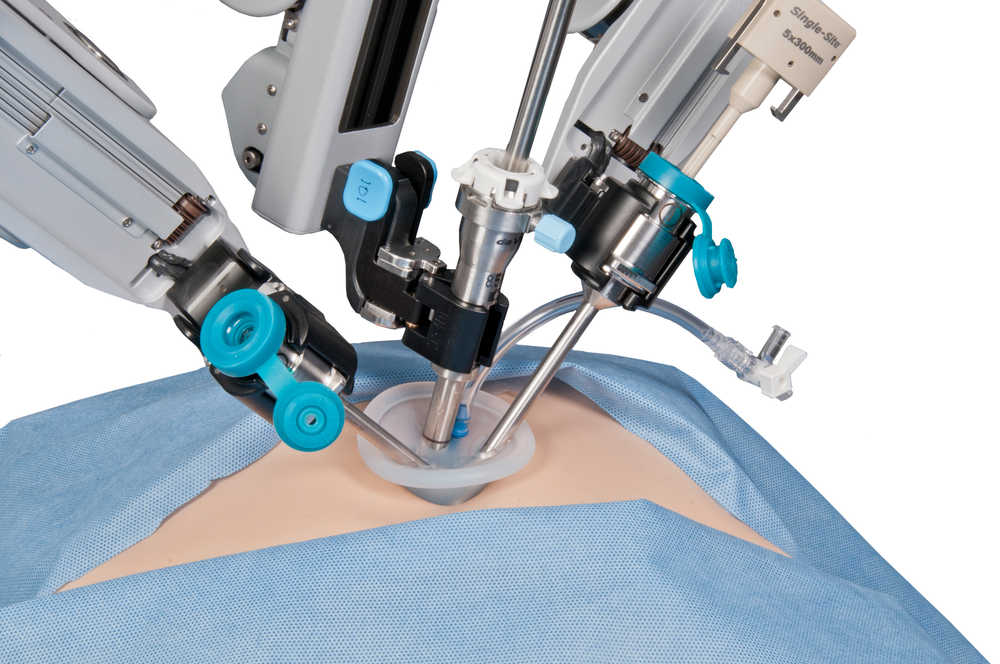
Robohub.org
In the news: Intuitive Surgical

Mini-tender offer:
TRC Capital Corp, a private firm founded by a Canadian securities lawyer, has made a mini-tender offer to purchase 250,000 shares of Intuitive Surgical stock at a price slightly below the current market price.
Mini-tender offers, because they are offers to purchase less than 5% of the company’s securities, are not governed by the Securities Exchange Act and don’t need to comply with the disclosures that are in place for larger tender offers. Intuitive Surgical announced today that it does not endorse the offer and recommends that stockholders reject it by not tendering their shares.
In the professional and business journals:
Perhaps a reason for the recent upward swing of Intuitive’s stock is that a recent issue of the journal Obstetrics & Gynecology (January, 2014, volume 123, Number 1) from the American College of Obstetricians and Gynecologists (ACOG) included four articles dealing with robotic surgery. Bottom line is that bumps along the way with regulatory regimes and technology adoption should be expected with new technology surgical devices. In one of the four articles, Milestones to Optimal Adoption of Robotic Technology in Gynecology, the abstract said:
Minimally invasive technology, especially robotics, is gaining widespread acceptance and is becoming the standard approach for the treatment of both benign and malignant gynecologic conditions in centers across the country. However, there are challenges on a systems-based level to the implementation of a robotic program. Prominent among the concerns is the length of the learning curve, team-building, quality of life, and financial and various organizational challenges.

Dating from a story in the WSJ on January 9th, Intuitive’s stock has risen 14.5% even after reporting reduced revenues (see below). The article showed that, in the case of prostate procedures, a large population-based study showed that robotic-assisted prostatectomy procedures resulted in shorter hospital stays and lower overall complication rates compared to open surgery. Other findings in the article were that as surgeons completed more robotic-assisted surgeries, there were decreases in overall surgery time, with less experienced surgeons averaging 5.0 hours for a case and more experienced surgeons averaging 3.9 hours thus contributing to the ACOG finding that surgeons improve with use over time.
[Intuitive got some bad press after the WSJ article because Intuitive paid for the researchers to have access to the databases used in the study, also paid for travel, and one of the authors of the report (which appeared in the December 18 electronic edition of the Journal of Endourology) was an employee of Intuitive Surgical.]
Q4 and Year-end Earnings:
On January 16th, Intuitive Surgical announced that it expects revenues for the fourth quarter to be down 5% from 2012. Full year revenues of $2.265 billion are up 4% from 2012. The consensus is that lower revenues from the sale of systems were attributable to slowed procedure growth in benign gynecology, and also changing hospital capital spending priorities associated with the implementation of the Affordable Care Act. But these declines were partially offset by higher international systems sales, particularly in Japan.
Intuitive’s business model is to sell systems and then support them with service contracts, instruments and accessories. Even with reduced gynecological procedures, the overall number of procedures increased 16% for the year to 523,000. Consequently as the number of surgical procedures rose, tools and accessories was up 6%, and services was up 16% for the year.
The Troubles:
Trouble started brewing for Intuitive investors earlier in the year when an article appearing in the Journal of the American Medical Association called into question the prudence and metrics of using daVinci for a large portion of hysterectomies. At the same time was a wrongful death suit and a series of posturings by class action law firms.
Later, Intuitive announced slow sales of daVinci units in the United States. After years of growth, hospital spending on new machines was much lower than expected. Many attributed this to cash flow uncertainty in the face of new regulations from the new Obamacare Affordable Care Act. About the same time the FDA sent out a query about possible non-reported incidents which ended up in a partial recall. Later still there was another recall of a part that could cause injury during a procedure.
With hospitals unwilling to pay for new machines until the fiscal picture clears up, one hedge fund manager, Stephen Mandel, decided not to stick it out and instructed his Lone Pine Capital fund to sell a big chunk of Intuitive’s stock. The sale of 1,161,068 shares was made during Q3 and was valued at approximately $430 million. Source: SEC 13F-HR Largest Eliminations.
If you liked this article, you may also be interested in:
- All eyes on Intuitive Surgical suit
- A flurry of bad publicity for Intuitive Surgical
- Jury finds Intuitive Surgical’s training practices NOT at fault
- Intuitive Surgical stock takes another big hit
- MAKO Surgical sells to Stryker for $1.65 billion
See all the latest robotics news on Robohub, or sign up for our weekly newsletter.
tags: c-Business-Finance, cx-Health-Medicine, Intuitive Surgical, Stocks



